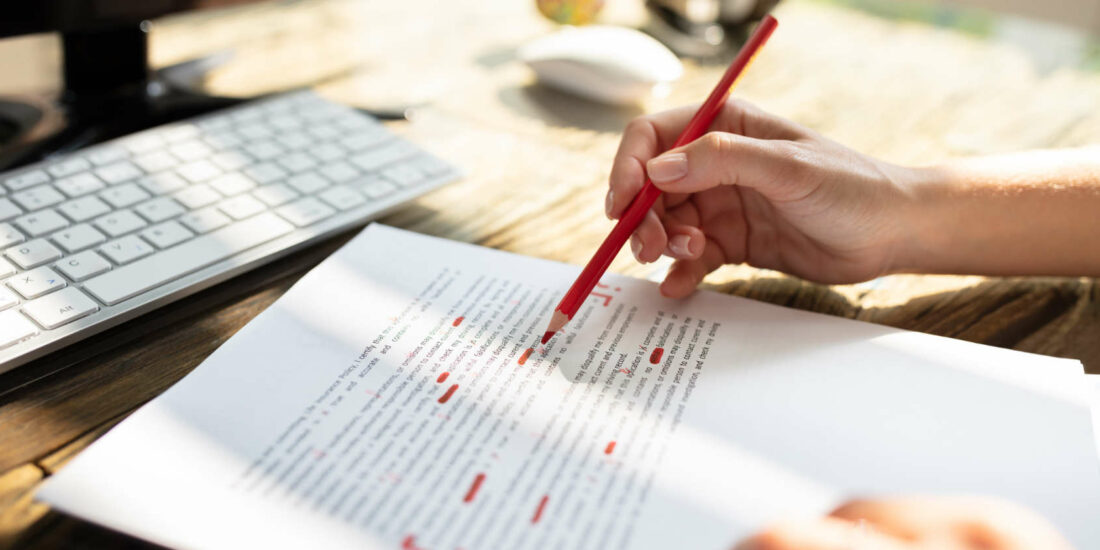
Strengthening Your Case with a Forensic Review Report
Introduction
A forensic review of an opposing party’s expert report is often undertaken when the client needs to independently verify or contest the validity of the report. A review report can be issued either concomitantly with or separately after an expert has issued a report based on independent analysis.
It takes an expert to tell an expert. The forensic review serves to ascertain the accuracy and reliability of the findings in the opposing expert report by evaluating the selected methodology, underlying assumptions, limitations, observations, data, inferences, findings, conclusions, and opinions stated by the expert. In our adversarial system, this provides the necessary scientific checks and balances against the opposing party’s report.
Misconceptions on Forensic Expert Reviews
Oftentimes, when the client receives an expert report from the opposing party, it takes some convincing for the client to understand and appreciate the importance, necessity and utility of a review report. This is especially so for those who have previously been issued an independent forensic report. Some common responses from clients who are not in favour of a review report include the following:
- Why do you need to conduct a forensic review of the opposing party’s report when your findings have been clearly stated in your independent analysis report?
- Why do you need to do a review report when you can simply testify in court on the agreements and disagreements during cross-examination and re-examination?
- Why is there a fee involved for you to read the opposing expert report?
- Why is the review report more costly than the independent report?
When is a Forensic Review Report Required?
Not all reviews of the opposing party’s report will lead to the issuance of a review report – this occurs when the review reveals largely areas of agreements and minor disagreements that do not affect the general conclusions of the opposing party’s expert report.
On the other hand, if the findings and claims of the opposing party are at variance with your expert’s independent analysis report, a review report is strongly recommended. Not contesting the opposing party’s expert report by means of a review report may be misconstrued that your expert is unable to put up a justifiable response. More notably, without a review report tendered ahead of trial, the areas of disagreement and scientific errors in the opposing expert report may not see the light of day in Court.
The Review Process
Reviewing a report incurs additional cost for the client as this challenging task entails the expert’s time, expertise and work resources. Contrary to what the client typically thinks, a review report may require more work and time than an independent report, especially when the findings in the two experts’ reports differ, and other scenarios or approaches need to be considered.
The review process comprises three key steps:
- Understanding the report: The reviewing expert has to first become familiar with the opposing expert’s report, broadly understand its contents, the key issues highlighted by the opposing expert, and the conclusions stated in the report.
- Critical analysis: At the second stage, the reviewing expert performs a critical analysis of the report by evaluating in detail the accuracy and validity of its methodology, data, reasoning, inferences, interpretation, findings, and conclusions. He will identify the strengths, shortcomings, gaps, inconsistencies and errors, and ascertain whether the basis of the conclusions is objective and supported by scientific principles.
- Writing the review report: The reviewing expert decides on a suitable and reader-friendly framework for the review report and systematically addresses the areas of agreement and disagreement. Each key area of inconsistency or contention, or difference in opinions is highlighted, followed by a detailed analysis and presentation of counter-arguments and counter-statements. The reviewer formulates a response to the opposing expert’s findings, and presents, clarifies or re-states his own analysis and opinions.
Scope of the Review Report
When preparing the review report, the expert requires adequate time to understand how and why the disagreements exist between the reports. He has to carefully review the opposing party’s report to identify strengths and weaknesses, deviations from standard methodologies, incorrect inferences, and possible inconsistencies and contradictions across different parts of the report. The reviewing expert needs to balance multiple perspectives, possible scenarios stated in his independent report and the alternative ones presented in the opposing party’s expert report.
Identify Errors, Inconsistencies and Contradictions
Types of errors in the opposing party’s expert report include:
- measurement and calculation errors;
- use of inappropriate formulae, scientific principles or methodologies;
- flaws in reasoning and interpretation; and
- inappropriate and misleading references (citing sources selectively instead of considering the study as a whole or quoting out of context).
Some of the above-mentioned errors and inconsistencies are easier to detect, while others may be inconspicuous, or seemingly convincing. There may be oft-repeated assertions in the opposing report that are incorrect, although they may appear incontestable and irrefutable to a layperson. Besides recognising and pinpointing these errors, the reviewing expert also reports the corrected version.
Highlight Different Assumptions and Interpretation
There may be instances when the disagreements between the two experts arise from differences in assumptions and interpretation of data. This may pertain to complex or complicated cases where significant missing gaps or a dearth of information actually require more assumptions, hypotheses and scenarios to be considered. Some expert reports may have oversimplified the case, ignored or downplayed critical elements which affect the outcome of the analysis; the reviewer needs to bring these critical factors back into consideration. One of the more challenging types of review relates to cases where the methodology used is valid and its scientific basis supported, but the inference or interpretation of the findings was erroneous.
Detect Ambiguous and Unsubstantiated Findings
In some cases, the opposing expert’s report is poorly organised and written, with gaps in information, ambiguity and vague reasoning, such that it is difficult for the reviewing expert to pinpoint the discrepancy and rectify it by providing an opinion on what it should have been. The reviewing expert may also detect multiple errors and unsubstantiated assertions, pointing to inaccurate analysis that was sloppy or lacking in objectivity and reliability.
Associate the Review Findings with His Independent Report
The expert must identify the salient points from his review of the opposing expert’s report, associate the review findings with his independent report, and if necessary, elaborate on the findings in order to strengthen the conclusions and opinions stated in his earlier report. If methodologies differ, or a different set of assumptions and limitations was used, the expert has to expand the scope of work of his independent report to consider the validity of the alternative framework and processes used in the opposing expert’s report.
Further work is often required in searching for additional scientific literature to verify or dispute certain claims or assumptions in the opposing expert’s report. Relevant references to prior scientific studies are crucial to the support and acceptance of counter-claims in the review report.
Value of a Review Report to the Expert
Primarily, reviewing an opposing party’s expert report gives the expert a fresh opportunity to revisit his own stand and objectively compare it against the viewpoints offered by another expert. Through this preparation, the expert will be better equipped to stand in court and testify as to why his expert report should be accepted instead of the opposing expert’s. A well written review report therefore serves a dual purpose – it sheds light on the strengths and weaknesses in the opposing expert’s conclusions, and reaffirms the reviewing expert’s independent report.
During the review process, the expert examines the merits and weaknesses in the opposing expert’s report, amalgamates the insights gained from reviewing it, and provides a suitable framework to address points of disagreement. In instances when the other expert was given additional materials and information, the expert will take into account the new information in his review report and make any necessary changes to his earlier independent report.1Reports are generally prefaced with qualifiers that the analysis and opinions stated were based on currently available information in the submitted documents, and that they may be revised with the availability of new information. This will save the Court time spent on determining whether the disagreements were due to differences in information provided to the two experts.
Value of a Review Report to the Lawyer
The review report raises awareness of the agreements and disagreements between the two expert reports. It informs and guides the lawyer preparing for the cross-examination of the opposing expert witness. During the pre-trial case preparation, the lawyer will gain greater clarity and understanding of each expert’s stand, and the strengths and weaknesses of their respective reports. The knowledge and information gleaned from the independent expert report and forensic review will assist him in making more informed decisions, and formulating a more holistic case strategy. He will also be able to better craft the line of questioning and be more equipped to cross-examine the opposing expert and other witnesses.
Without the review report, if the opposing counsel intentionally leaves out cross-examining the expert on areas of disagreement, the expert would not have the opportunity to point out and rebut the inconsistencies and flaws in the opposing expert’s report, as he is not allowed to tender any new evidence in his testimony.
When there are largely areas of agreements in a forensic review, the findings can still be vital to the lawyer. For example, in a civil dispute case where the client claimed that the opposing party forged his signature in a contract but both the opposing party’s expert report and the forensic review showed otherwise, the lawyer will be inclined to put less emphasis on this document in court.
Value of a Review Report to the Court
A review report that is tendered to court allows both parties and the Judge to have a clearer understanding of the forensic issues in dispute. By identifying points of agreement, the review report will save the court time, as agreed points need not be discussed at the trial. The court trial can instead focus on critical areas of contention and disagreements between the experts.
At times, a review report may lead to a case settlement as parties are able to assess the strengths and weaknesses of their case vis a vis the findings in the independent reports and review reports.
Conclusion
A review report provides an opportunity for the expert to consider and address the points of agreement and disagreement systematically and holistically. It compares the two experts’ opinions, subjects the opposing expert’s report to a scientific “stress test”, and serves as a counterbalance. This written document allows both parties and the Judge ahead of the trial to gain a clear understanding of the key forensic issues.
The review report is often worth its weight in salt because it can pre-empt and parry blows during cross-examination, while strengthening the client’s case. In a review report, it is essential for the expert to ensure that his findings and disagreements are grounded on well-accepted scientific principles and methodology, and the significance of his conclusions and opinions are objective and neither overstated nor understated. Only then can he establish that his expert report is more credible than that of the opposing expert’s.
Related Articles
- Staying Non-partisan – the Duty of an Expert, Law Gazette, April 2019
- Engaging and Working with a Forensic Expert, Law Gazette, May 2019
- The Forensic Expert Witness – Forensic Science, Briefs for the Legal Practitioner, Chapter 17, The Forensic Experts Group, 2017
Endnotes
| ↑1 | Reports are generally prefaced with qualifiers that the analysis and opinions stated were based on currently available information in the submitted documents, and that they may be revised with the availability of new information. |
|---|





